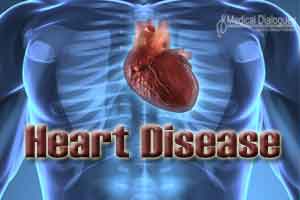- Home
- Editorial
- News
- Practice Guidelines
- Anesthesiology Guidelines
- Cancer Guidelines
- Cardiac Sciences Guidelines
- Critical Care Guidelines
- Dentistry Guidelines
- Dermatology Guidelines
- Diabetes and Endo Guidelines
- Diagnostics Guidelines
- ENT Guidelines
- Featured Practice Guidelines
- Gastroenterology Guidelines
- Geriatrics Guidelines
- Medicine Guidelines
- Nephrology Guidelines
- Neurosciences Guidelines
- Obs and Gynae Guidelines
- Ophthalmology Guidelines
- Orthopaedics Guidelines
- Paediatrics Guidelines
- Psychiatry Guidelines
- Pulmonology Guidelines
- Radiology Guidelines
- Surgery Guidelines
- Urology Guidelines
Disrupting tiny liver protein can cause heart disease

New York : Scientists have identified for the first time a tiny liver protein that when disrupted can lead to cardiovascular disease as well as fatty liver disease a precursor to cancer.
Lipoproteins (VLDL) are crucial for healthy liver function. Normal VLDL secretion must be kept in a delicate balance as too little VLDL secretion causes fatty liver and, potentially, liver cancer.
Lipoproteins are also known to increase cholesterol levels, a risk factor for plaque buildup in the arteries.
In a study, published recently in the Journal of Biological Chemistry, Shadab Siddiqi from University of Central Florida found a tiny protein called a Small Valosin-Containing Protein Interacting Protein (SVIP) that regulates how much VLDL is secreted into the blood.
"SVIP in the liver must be regulated properly to ensure optimum health," Siddiqi said.
He equates the operation of the tiny protein to a manually operated car. "To run smoothly, the driver must synchronise the gas pedal and the clutch. If the two aren't synchronised, the car doesn't move easily; it has fits and starts and ultimately stalls," he said.
The study also suggests that high levels of myristic acid in the diet through animal and dairy fats keep SVIP from properly regulating the liver's secretion of VLDL.
"These findings suggest that our diet modulates the complex molecular processes that have profound effects on our health and lifespan," Siddiqi explained.
"The challenge will be in creating a therapy that does not impact the liver's many other functions," he added.

Disclaimer: This site is primarily intended for healthcare professionals. Any content/information on this website does not replace the advice of medical and/or health professionals and should not be construed as medical/diagnostic advice/endorsement or prescription. Use of this site is subject to our terms of use, privacy policy, advertisement policy. © 2020 Minerva Medical Treatment Pvt Ltd